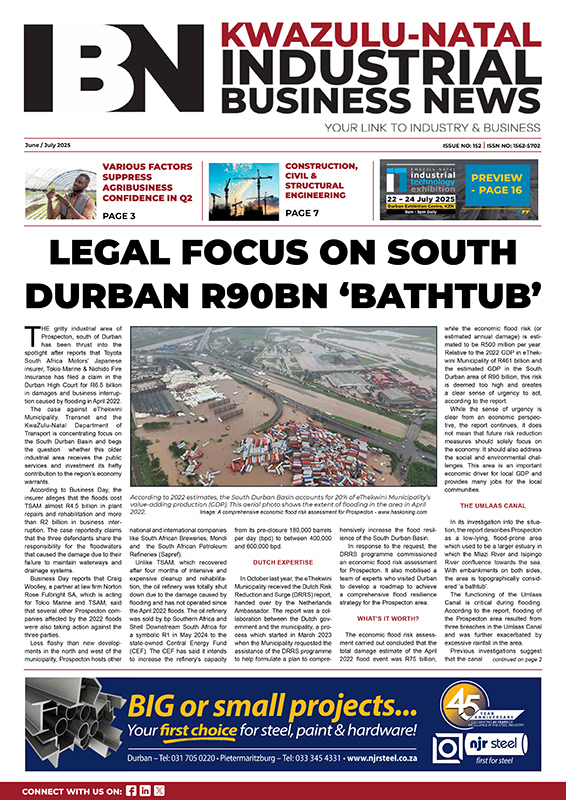DISASTER risk management is entering a new era driven by smarter, safer and more resilient technologies. As urban risks intensify, traditional methods can no longer keep up with the pace. Technology is leading the way, according to eThekwini Municipality.
Drones, artificial intelligence (AI), and geographic information systems (GIS) are transforming how municipalities anticipate, respond to, and recover from disasters, ushering in a future defined by preparedness.
This was witnessed at the 4th Annual Southern African Drone, AI and GIS Conference being held in Durban this week.
As a groundbreaking event, the conference is shaping the future of disaster preparedness and resilience across the region.
Hosted by QP Drone Tech in partnership with South Africa Flying Labs, WeRobotics and Esri, the conference has drawn government leaders, SADC dignitaries, G20 representatives, drone operators, GIS specialists, academics and civil society to share best practices and explore innovative solutions.
Delegates from across the SADC region showcased how modern technology has helped their countries overcome disaster-related challenges from rapid aerial mapping during floods, to AI-driven predictive models for drought management, proving that innovation saves lives.
Minister of Cooperative Governance and Traditional Affairs Velenkosini Hlabisa described the gathering as a turning point for the province.
“KwaZulu-Natal has felt the devastating impact of disasters firsthand. Investing in technology is no longer optional, it is an urgent necessity. By learning from SADC communities and leveraging tools like drones, AI, and GIS, we can predict risks earlier, respond faster, and protect lives and livelihoods.”
The conference is about reimagining resilience and ensuring that technology works for humanity.
Experts emphasised that collaboration across borders is critical.
The exchange of knowledge and shared experiences from SADC countries demonstrates that regional solidarity and innovation can transform disaster risk management.
EThekwini Deputy Mayor Councillor Zandile Myeni echoed the call for collaboration, saying that technology and government must work hand in hand to safeguard communities against climate change and urbanisation.
“Through partnerships forged here, eThekwini will integrate cutting-edge solutions into its disaster management framework building stronger, adaptive, and more resilient communities,” she said.
As discussions continued, delegates agreed that innovation must be paired with capacity building and local empowerment.
This ensures that technology does not remain an abstract concept but becomes a tool for real change on the ground.
The CEO of QP Drone Tech Queen Ndlovu said while natural disasters are inevitable, their impact however does not have to be catastrophic.
“Investing in technology for preparedness, not just for response is key to saving lives and protecting livelihoods,” she said.
The summit concludes today, 5 November, with live drone demonstrations at Moses Mabhida Stadium and hands-on GIS workshops, showcasing how technology is reshaping emergency response in real time.








